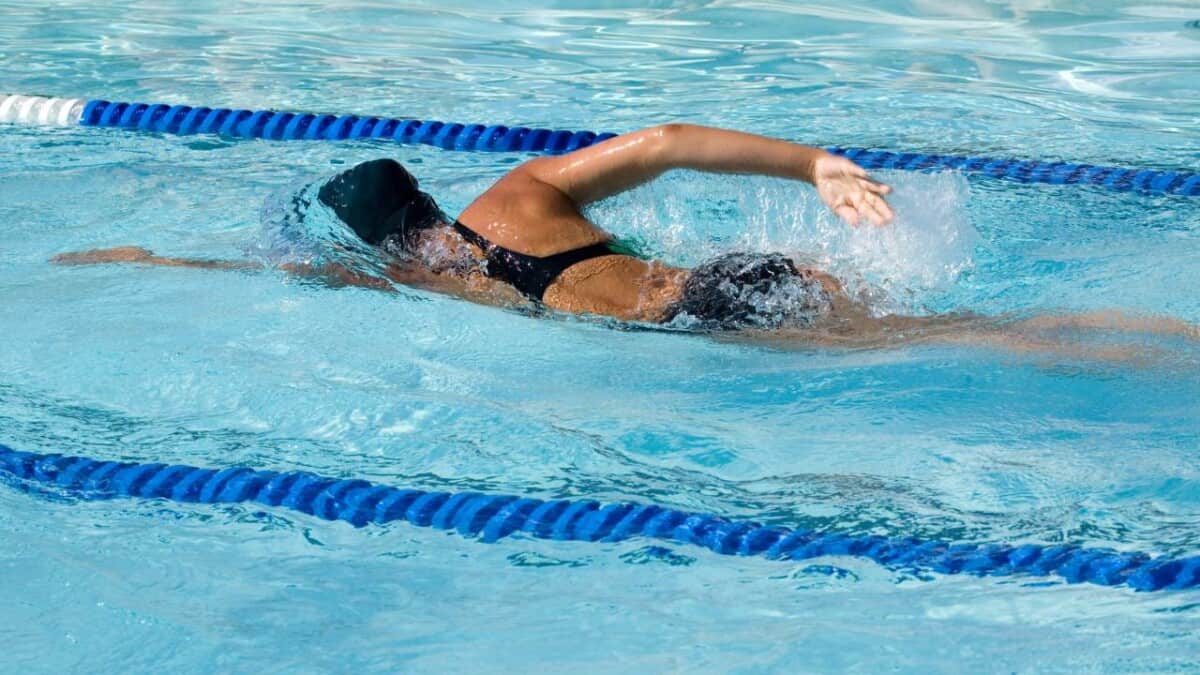Swimming is an excellent form of exercise that provides a full-body workout. One of the most popular swimming distances is 1000m, which can be challenging for many swimmers. Understanding the average time it takes to swim 1000m by age and ability can help swimmers set goals and track their progress.
Table of Contents
How Long Does it Take to Swim 1000m

The average time it takes to swim 1000m is between 19:00 and 31:00 for all ages and genders. However, this time can vary significantly based on age and ability. For example, the average time for a man to swim 1000m is 19:12, while the average time for a woman is 22:02.
Additionally, beginners may take longer to complete the distance than more experienced swimmers. Below is a data table that shows the average time it takes to swim 1000m by age and ability for males who swim on average 2-3 times per week.
These times are for freestyle/front crawl. It’s important to note that these times are not set in stone and can vary based on individual factors such as fitness level, technique, and training regimen. However, the table can serve as a useful benchmark for swimmers looking to improve their 1000m time.
| Age | Average Time to Swim 1000m Male |
| 15-20 | 00:24:50 |
| 20-25 | 00:21:40 |
| 25-30 | 00:22:40 |
| 30-35 | 00:23:30 |
| 35-40 | 00:24:20 |
| 40-45 | 00:25:10 |
| 45-50 | 00:28:20 |
| 50-55 | 00:29:20 |
| 55-60 | 00:30:30 |
| 60-65 | 00:31:50 |
| Age | Average Time to Swim 1000m Female |
| 15 -20 | 00:28:30 |
| 20-25 | 00:25:40 |
| 25-30 | 00:26:50 |
| 30-35 | 00:27:10 |
| 35-40 | 00:27:20 |
| 40-45 | 00:27:50 |
| 45-50 | 00:28:50 |
| 50-55 | 00:30:10 |
| 55-60 | 00:31:50 |
| 60-65 | 00:35:50 |
It’s important to note that these times are just averages and can vary greatly depending on individual ability, training, and experience. Additionally, these times are based on individuals who swim on average 2-3 times per week and can be classified as beginners. More experienced swimmers or those who train more frequently may have faster times.
For the complete data analysis of every swim time for all distances by age, gender and ability, check out this article with the overall average swim times.
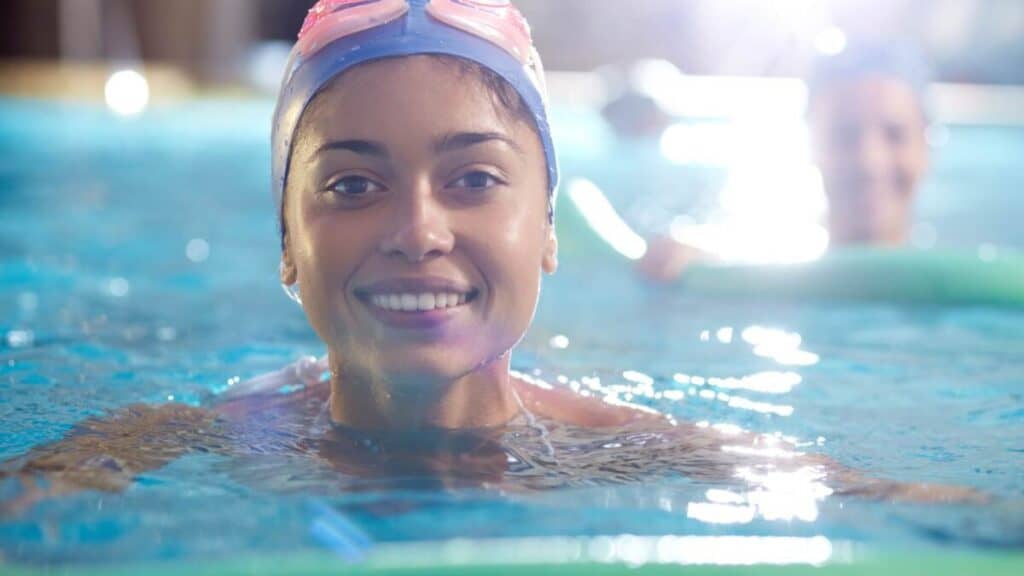
Importance of Knowing Average Time to Swim 1000m
Knowing the average time to swim 1000m can be helpful for swimmers of all levels. Whether you are a beginner looking to improve your time or a competitive swimmer trying to set a new personal record, understanding what is considered a good time can be a valuable tool in achieving your goals.
Additionally, knowing the average time to swim 1000m can give you a sense of where you stand compared to other swimmers in your age and ability group. This can be useful for setting realistic goals and measuring your progress over time.
For example, according to data from Swimming Level, the average 1000m swim time across all ages and genders is 19:50. However, this time varies based on age and gender. For men, the average 1000m time is 19:12, while for women it is 21:29. By comparing your own time to these averages, you can get a sense of how you stack up against others in your category.
| Finish Time | 100m Pace | 100 yd Pace | Female 1000m Swimming Times |
|---|---|---|---|
| 15-20 | 02:51.0 | 00:05:42 | 17:09 |
| 21-25 | 02:54.0 | 00:05:48 | 18:18 |
| 26-30 | 02:56.0 | 00:05:52 | 18:43 |
| 31-35 | 02:58.0 | 00:05:56 | 19:08 |
| 36-40 | 03:01.0 | 00:06:02 | 19:33 |
| 41-45 | 03:04.0 | 00:06:08 | 20:03 |
| 46-50 | 03:08.0 | 00:06:16 | 20:33 |
| 51-55 | 03:12.0 | 00:06:24 | 21:03 |
| 56-60 | 03:18.0 | 00:06:36 | 21:33 |
As you can see from the table above, average 1000m swim times can vary greatly depending on age and ability. For example, a 15-20 year old female with a finish time of 17:09 is considered to be swimming at an advanced level, while a 56-60 year old male with a finish time of 21:33 is considered to be swimming at a beginner level.
Overall, understanding the average time to swim 1000m can be a useful tool for swimmers looking to improve their performance and measure their progress over time.
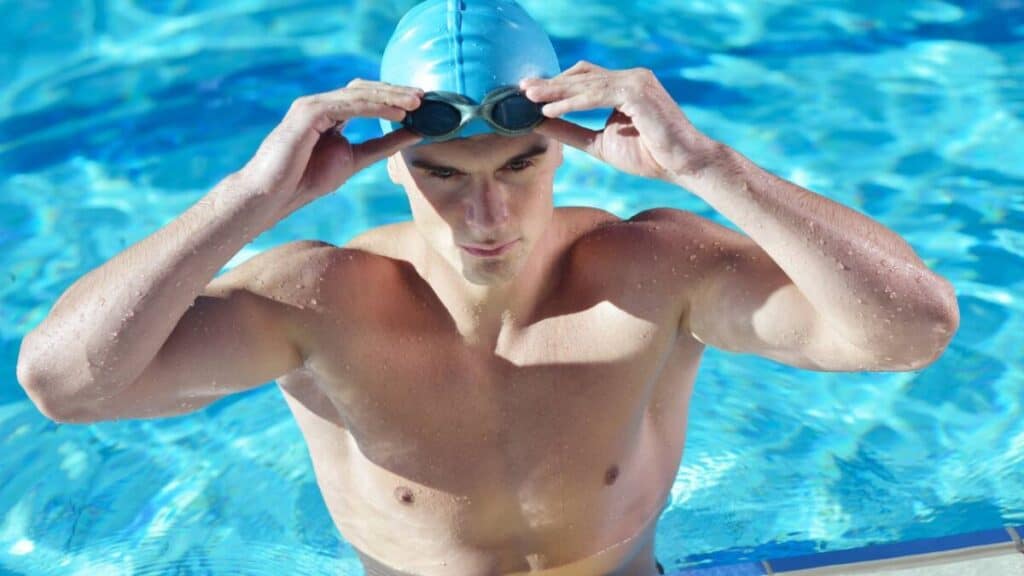
Factors Affecting Average Time to Swim 1000m
Age
Age is a significant factor affecting the average time to swim 1000m. As people age, their physical abilities decline, and their endurance and strength decrease. Therefore, it is expected that older swimmers will have slower average times than younger swimmers.
The average 1k time for men of all ages is 19:12, while for women, it is 20:41. However, these times are not absolute, and many older swimmers can still achieve excellent times with proper training and a healthy lifestyle.
Ability
Swimming ability is another crucial factor affecting the average time to swim 1000m. An experienced swimmer with excellent technique will likely have a faster average time than a beginner swimmer with poor technique.
The average 1k time for a man is 19:12, while a good 1k time for a woman is 20:41. However, the times can vary significantly depending on the swimmer’s ability level. For example, a competitive swimmer will have a much faster average time than a recreational swimmer.
Training Regimen
The training regimen is another significant factor affecting the average time to swim 1000m. A swimmer who trains regularly and follows a well-designed training program will likely have a faster average time than a swimmer who does not.
The training program should include a mix of endurance, speed, and technique training to improve the swimmer’s overall performance.
Analyzing the swim data is essential to understanding the swimmer’s strengths and weaknesses and designing an effective training program.
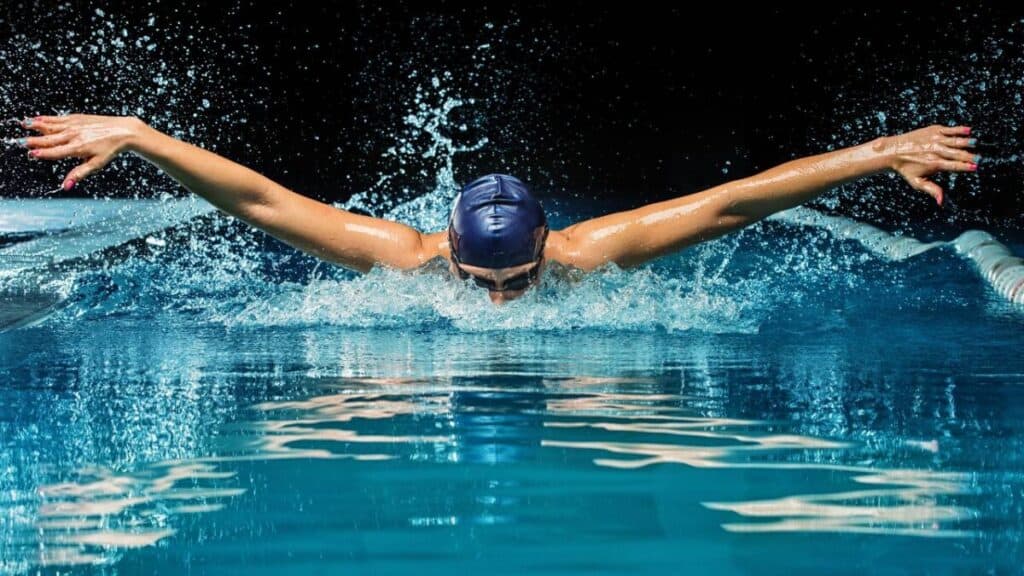
What is a Good 1km Swim Time
| Average Time | Good Time (Male) | Good Time (Female) | |
|---|---|---|---|
| Age 18-24 | 18:30 | 16:00 | 17:30 |
| Age 25-34 | 19:00 | 16:30 | 18:00 |
| Age 35-44 | 20:00 | 17:30 | 19:00 |
| Age 45-54 | 22:00 | 19:00 | 20:30 |
| Age 55-64 | 25:00 | 21:30 | 23:00 |
| Age 65-74 | 28:00 | 24:00 | 26:00 |
| Age 75+ | 31:00 | 26:30 | 28:30 |
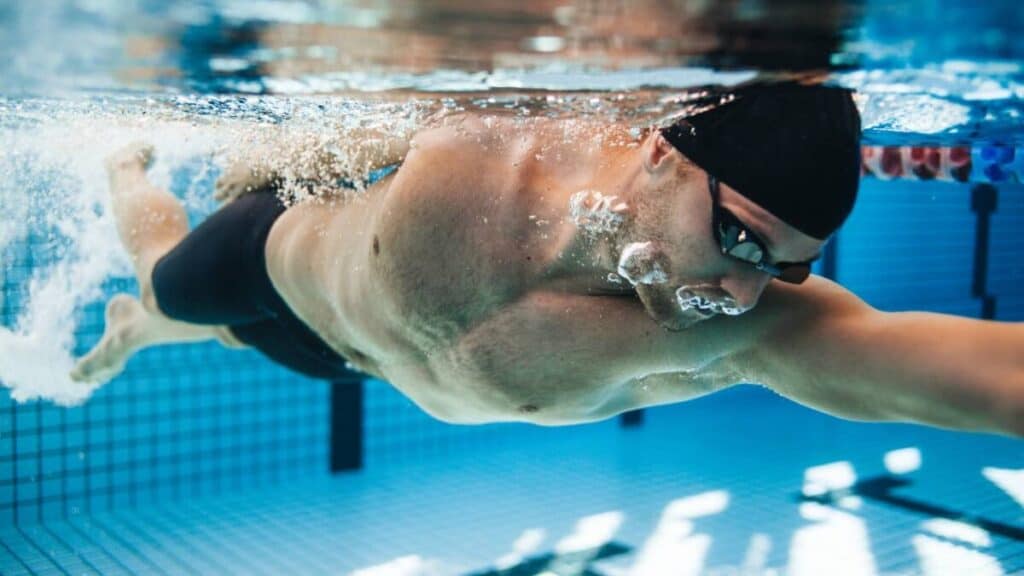
How Many Calories Do You Burn Swimming 1000m?
Swimming is an excellent way to burn calories and stay fit. The number of calories you burn while swimming depends on various factors, such as your weight, stroke, speed, and duration. On average, swimming burns between 300 to 600 calories per hour.
If you are wondering how many calories you burn swimming 1000m, it depends on the stroke you choose and your speed.
According to Livestrong, swimming 1000m of the freestyle stroke burns around 70 calories for a person weighing 155 pounds. The breaststroke burns around 60 calories, and the backstroke burns around 80 calories for the same person.
However, these numbers are just estimates, and the actual number of calories burned will vary depending on your individual factors. To get a more accurate estimate, you can use a calories burned swimming calculator, like the one provided by Omni Calculator.
It’s important to note that swimming is not just an effective way to burn calories but also has numerous other health benefits, such as improving cardiovascular health, building endurance, and reducing stress. So, if you enjoy swimming, it’s a great way to stay fit and healthy.
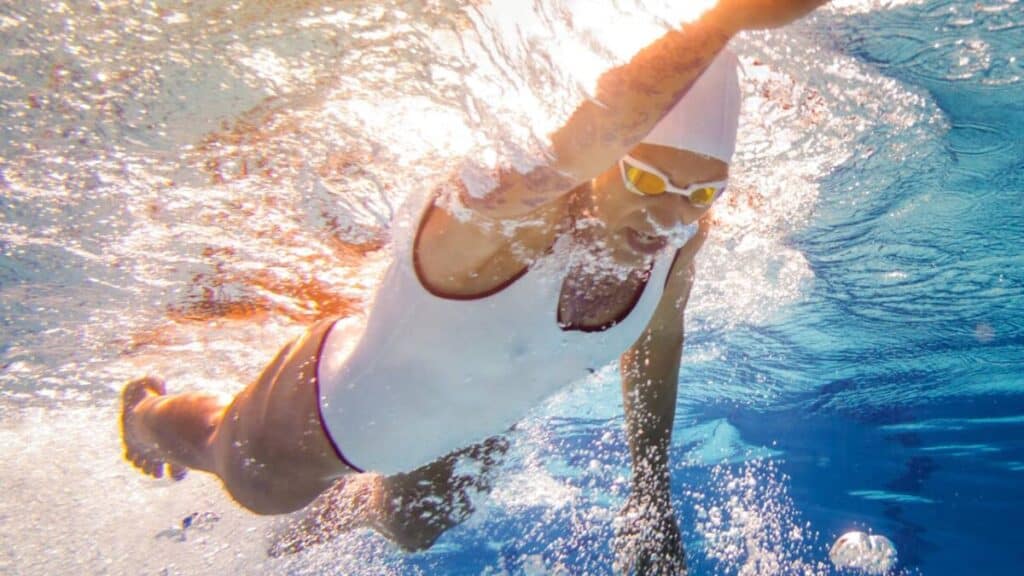
Table: Average Swim Times By Age and Ability
| Age Group | Beginner | Intermediate | Advanced |
|---|---|---|---|
| Under 10 | 15:00+ | 10:00-15:00 | <10:00 |
| 11-12 | 20:00+ | 15:00-20:00 | <15:00 |
| 13-14 | 22:00+ | 18:00-22:00 | <18:00 |
| 15-18 | 25:00+ | 20:00-25:00 | <20:00 |
| 19-29 | 26:00+ | 22:00-26:00 | <22:00 |
| 30-39 | 28:00+ | 24:00-28:00 | <24:00 |
| 40-49 | 30:00+ | 26:00-30:00 | <26:00 |
| 50-59 | 32:00+ | 28:00-32:00 | <28:00 |
| 60-69 | 34:00+ | 30:00-34:00 | <30:00 |
| 70+ | 36:00+ | 32:00-36:00 | <32:00 |
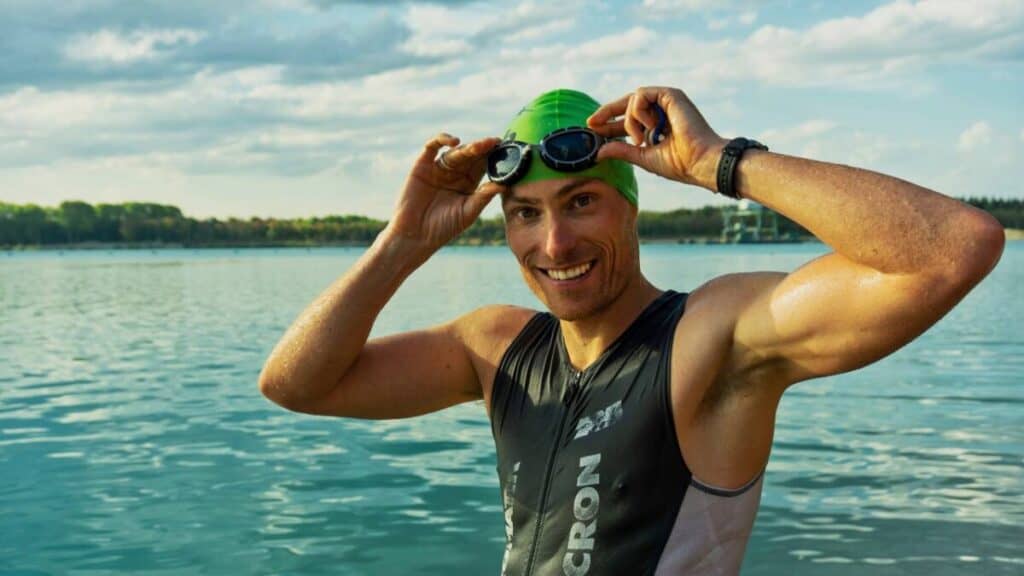
Other Swimming Distances You Might Like:
Average Time to Swim 1000m Summary
Swimming 1000m is a challenging task that requires a lot of practice and dedication. The average time for a 1000m swim varies depending on age and ability level. According to the data, a good 1000m time is 22:50, which is the average time across all ages and genders. For men, a good 1000m time is 20:12, which is the average time across all ages.
The data also shows that beginners can complete a 400m breaststroke swim in 10-14 minutes. Intermediate swimmers can typically complete the swim in 6-7 minutes, while professional swimmers can finish in 4:30-5 minutes. It is important to note that these times are for breaststroke and may vary for other swimming styles.
As with any sport, the more you practice, the better you will become. It is recommended to set achievable goals and work towards them gradually. Building a swim routine that focuses on improving your 100m splits can help you drop your overall time for a 1000m swim. Additionally, incorporating strength and endurance training outside of the pool can also improve your swimming performance.
